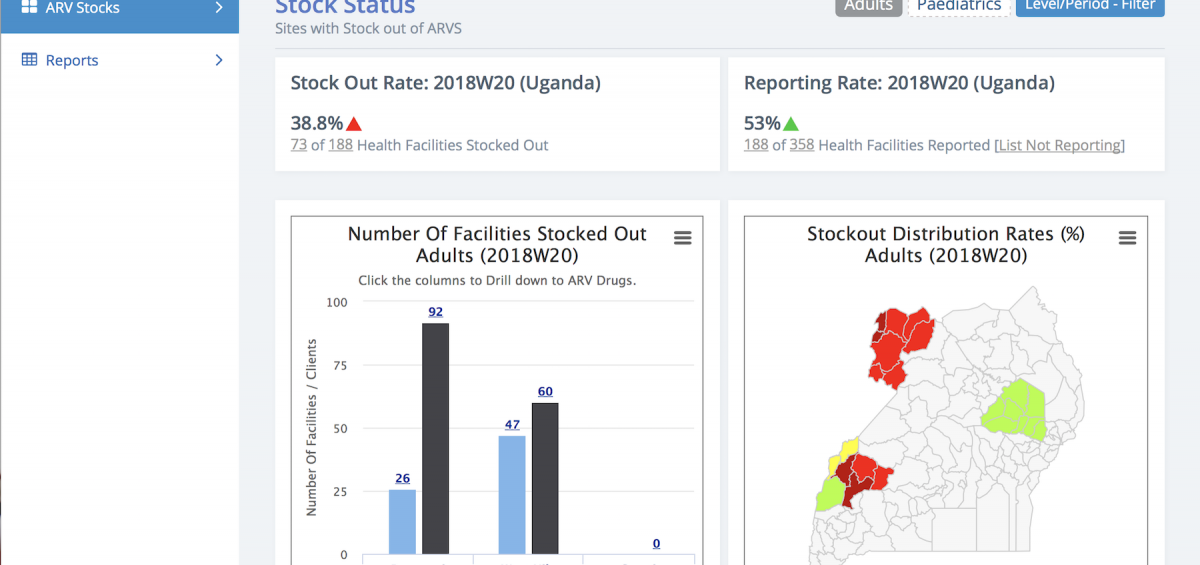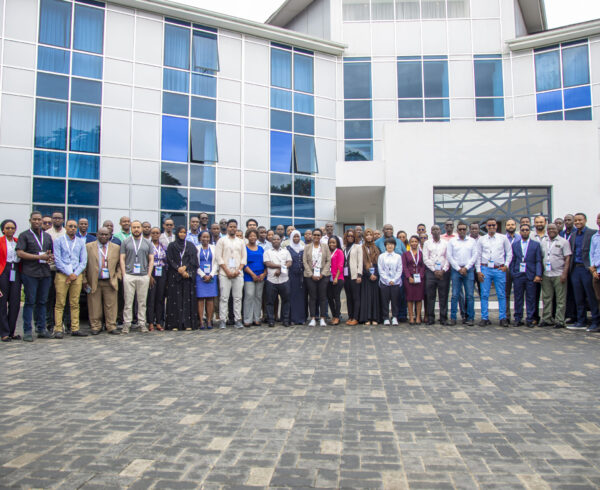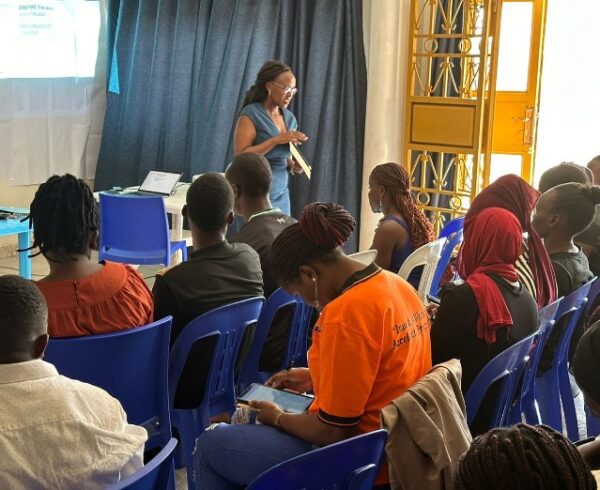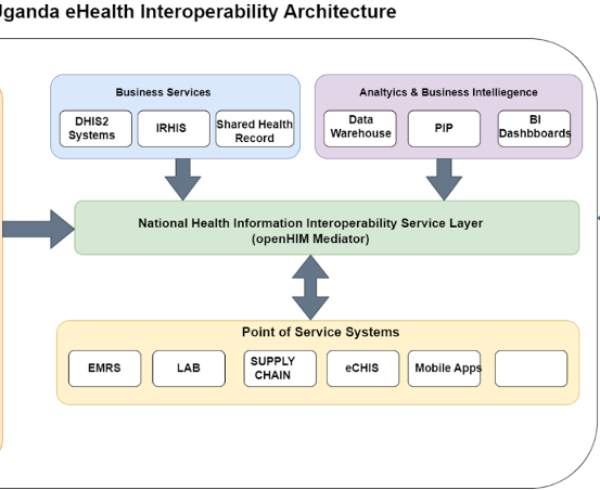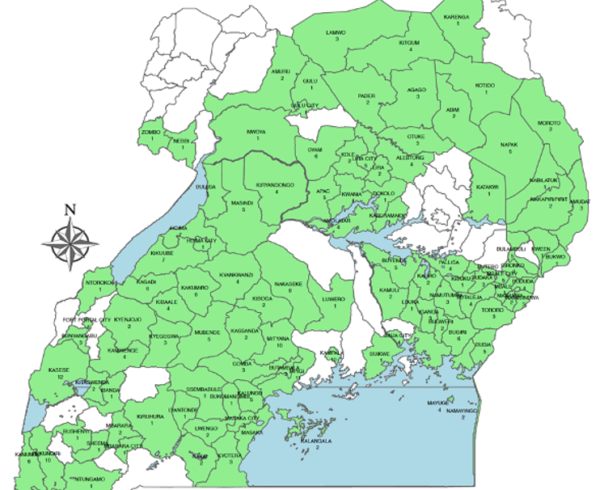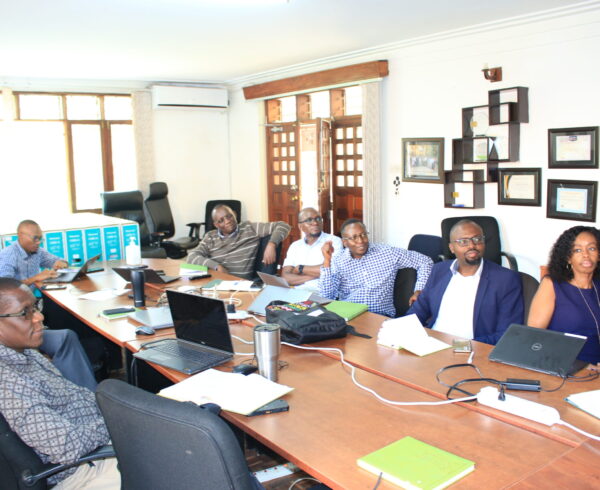The Real-Time ARV Stock Status (RASS) System is a dashboard aimed at providing real-time intelligent data on ARV and Rapid Test Kit supplies (HIV commodities) while integrating it with data from other Health Information Systems (Patient numbers on ART, orders and distributions) for enhanced decision making to key stakeholders (Ministry of Health, District Health Teams, Warehouses, and Implementing Partners). The stakeholders monitor the dashboard to regulate stock levels across health facilities and regions as well as undertake evidence-based actions in logistic planning, for instance, redistributing ARV or Rapid Test Kit supplies from overstocked to understocked health facilities.
The RASS implementation started in June 2017 and majorly focused on ART accredited Health Facilities for both Government and Private entities. The system works by facilities reporting stock status and receipt for both ARV and Rapid Test Kit supplies on a weekly basis through a Short Text Message (SMS) via a mobile handset to the RASS System. This is then inter-operates with the national electronic Health Information System (eHMIS) and other facility level supply chain systems (like Rx Solution). The system is currently being implemented in West Nile, Rwenzori and Teso Regions of Uganda covering a total of 361 Health facilities in 25 districts. Mass country wide implementations are expected to have been completed by end March 2019, spanning a total of 1548 Health facilities in 9 regions across 94 districts.
Upon a successfully pilot of the RASS system in 261 Health Facilities in the Rwenzori and West Nile regions, in June 2017, and with recommendations from the evaluation report on RASS, a scale up for implementation of RASS in all the CDC supported districts was initiated. This started with the Soroti (Teso) Region in March 2018 that covered 100 ART sites.
To fast track the implementation of RASS in the remaining four (4) regions of Central, Bunyoro, Masaka and Kampala (28 districts, and 668 ART Health facilities), METS conducted a three-day Training of Trainers workshop to equip the identified national trainers on the RASS system on how to submit reports and use the data within the system. Mark Agara, Senior Advisor Supply Chain Management at MoH remained participants that the main objective of tracking and monitoring the consumption and distribution of key HIV commodities – ARV drugs and Rapid Test Kits was key in decision making.
Twenty-two (22) participants from MoH (7), MAUL (1), Regional IPS (8), and METS (7) were identified to form four (4) teams of at least four (4) trainers each. These teams are to be dispatched to the four (4) regions to conduct the RASS system rollout in June 2018.
The training was closed by Dr. Stephen Pande from Ministry of Health who urged the participants to continuously use the system as usage would make them better trainers. He also called on METS to remain available to further provide technical assistance to the different beneficiaries of the trainings that were to be carried out.
The trainings in Kampala, Masaka, central 1 and Bunyoro regions are expected to begin mid June 2018 in Jinja, Mityana, Mbarara, Kabarole and Hoima.

